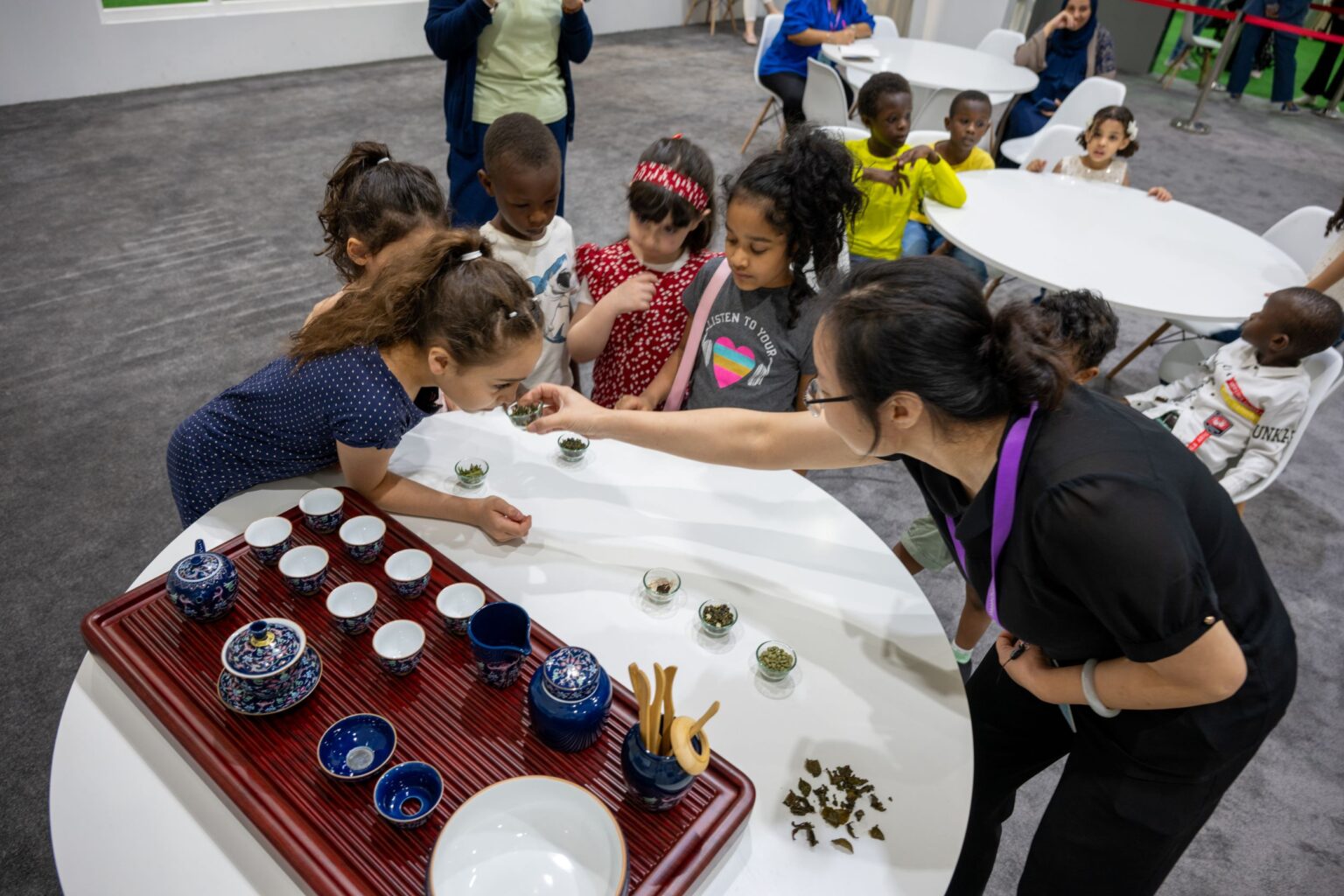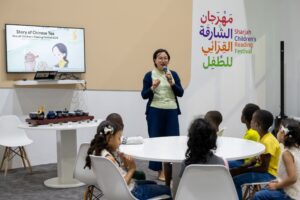
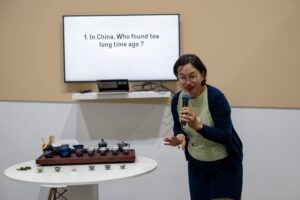
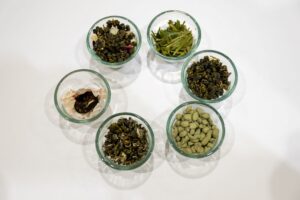
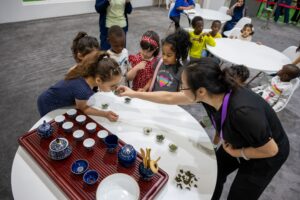
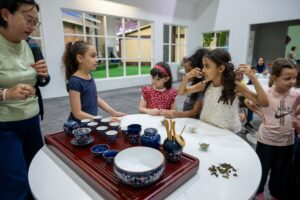 Tea, a beloved global beverage, was fortuitously discovered in China, akin to coffee’s serendipitous origins in Yemen centuries earlier. “It dates back to ancient times when Shennong first encountered tea, as leaves from burning twigs fell into his boiling cauldron,” shared Hong Zhang at a Chinese Tea workshop held during the Sharjah Children’s Reading Festival (SCRF) on Wednesday.
Tea, a beloved global beverage, was fortuitously discovered in China, akin to coffee’s serendipitous origins in Yemen centuries earlier. “It dates back to ancient times when Shennong first encountered tea, as leaves from burning twigs fell into his boiling cauldron,” shared Hong Zhang at a Chinese Tea workshop held during the Sharjah Children’s Reading Festival (SCRF) on Wednesday.
The Chinese tea making demonstration was attended by children as young as three, which testifies to the 12-day event’s invaluable role in bringing global cultures and practices under one roof for young generations to discover and learn about.
It educated them about the various Chinese teas, distinctly different from the UAE’s popular karak, which is a favourite beverage that fuels the country’s faced-paced lifestyle. “In China, tea symbolises harmony with nature. It’s a meditative, communal ritual, showing hospitality and respect, similar to how tea is offered to guests here in the UAE,” Zhang explained to the young participants.
This 30-minute session proved to be immersive and interactive, allowing children to explore different teas’ aromas, taste them, and even learn a few Chinese words. Zhang, gesturing towards an elegant royal blue porcelain tea set, added, “These sets are reserved for formal tea ceremonies. In China, tea preparation is a form of meditation.”
The meticulous preparation of Chinese tea involves a rhythm and delicacy. Tea leaves are carefully picked with bamboo tongs, never by hand, and placed in a teapot. “First, we pour a little boiling water to warm and cleanse the pot, which we then discard. Afterward, we add more boiling water and let the tea steep for a few minutes before serving in small cups, similar to Arabic Kahwa cups,” Zhang detailed.
The workshop showcased five distinct Chinese teas—green, Oolong, black, white, and pu-erh—for the children to smell and experience firsthand. “Oolong is best with boiling hot water, while green tea prefers a gentler heat, around 80 degrees Celsius,” Zhang noted.
“This workshop offers a new sensory experience and a glimpse into diverse cultures and traditions,” said Eman Farouk, mother of three-year-old Hassan, who participated in this workshop.
Zhang also shared the health benefits of tea, noting, “Drinking tea can brighten smiles, shield against pollution, and aid digestion,” proudly reflecting on the drink’s esteemed status in Chinese culture for its medicinal qualities. Participants left with tea souvenirs.
Zhang and team contribute to the UAE’s Ministry of Education. They design educational cultural exchange programmes and provide teacher training.

